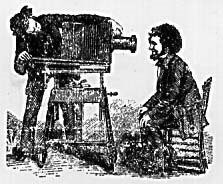As the title of today's post suggests, the main theme of this reading is Britain's contribution to Cultural studies (in the European Theory article this expands to include Europe as a whole). What we find in both readings is that Europe started the cultural studies phenomena, and also gave the subject its worst shortcoming. That is, as Europe gave birth to the field of cultural studies, so did it give birth to its "Western" bias and perspective. We see this on page 52 of Introducing Cultural Studies where it mentions that British cultural studies in particular has a tendency to see its own culture, "...as a prototype model for the world to follow" Also in the Impact of European Theory article, "...Levi Strauss is blind to the fact that his own bipolar structure is an imposition of the West" (83) The main issue with the begining of cultural studies is that it was terribly flawed.
1) A keyword I found particularly useful is "civilization". This ties back to cultural studies tending to favor the culture of the one who is studying another. In 1879 Arnold said "Civilization is the humanization of man in society" (35) So according to Arnold, the term "civilization" is what makes us human. However, this is purely a subjective idea. After all, you are always most likely to say that you yourself are furthest from the uncivilized (you are the one doing the research). So it's fairly predictable, that when studying civilization anyone different from you becomes less civilized; or to follow Arnold's definition, less human.
2)Wikipedia has an article on Semiotics "http://en.wikipedia.org/wiki/Semiotics" read it if for no other reason than that they keep bringing it up in all the texts and if you don't know what the term means (I didn't) you'll continue to be lost.
3)Here is an article on structuralism, one more term I had to look up:"http://www.as.ua.edu/ant/Faculty/murphy/struct.htm"
announcements
This blog was created by and for students in an Introduction to Cultural Studies class at the University of Washington. Through an investigation of urban experience and representation--in theory, in graphic novels and in our own "readings" of Seattle's University District--we considered the formation and history of cultural studies as an (anti)discipline, with a special emphasis on the questions, "What does cultural studies do, and how do you do cultural studies?"
If you'd like to know more about the class, the blog or our U-District artifact project, please contact Gabrielle Dean: gnodean@u.washington.edu.
If you'd like to know more about the class, the blog or our U-District artifact project, please contact Gabrielle Dean: gnodean@u.washington.edu.
Tuesday, April 15, 2008
Subscribe to:
Post Comments (Atom)
blog archive
-
▼
2008
(92)
-
▼
April
(35)
- Identity in City of Glass
- History of Origins: Race Studies
- History of Origins: Gender Studies
- History of Origins: Gender Studies
- History of Origins: America
- History of Origins: Race Studies
- History of Origins: Gender Studies
- History of Origins: Race Studies
- History of Origins: Race Studies
- History of Origins: Media and Science
- History of Origins: Media and Science
- History of Origins: Gender Studies
- History of Origins: Media and Science
- History of Origins: European Theory
- History of Origins: European Theory
- History of Origins: European Theory
- History of Origins: European Theory
- History of Origins: European Theory
- History of Origins: America
- History of Origins: European Theory
- History of Origins: America
- History of Orgins: European Theory
- History of Origins: European Theory
- History of Origins: Great Britain
- History of Origins: Great Britain
- Cultural Studies in Britain
- Cultural Studies in Britain
- History of Origins: General
- History of Origins: General
- History of Origins: General
- History of Origins: General
- "Orientalism"
- Are You an Author?
- "Paris, Capital of the 19th Century"
- READING: A WEB MODEL
-
▼
April
(35)

1 comment:
History of Orgins: European Theory
What cultural studies can do, its social and cultural effects on the world was of important concern to Sardar and Van Loon in Introducing to Cultural Studies and to some of the European scholars and philosophers studying cultural studies. According to “The impact of European theory” in the Cultural Studies Reader, the theories that were created to study the “nature in culture, or elaborations of subjectivity or identity-politics in society,” were valued for their capacity to provide a “methodology for producing, reading, and consuming cultures and cultural practices.” The theory of signs, or semiotics, for example, looked at language as something that generates meaning by a systems of relationships, by producing a network of similarities and differences. This linguistic theory of the signs also served as an influential ground for other theories, such as structuralism, psychoanalysis, deconstruction, and post-structuralism. Structuralism, as it is often noted, shifted and “situated language in a scientific frame.”
1. Since several theorists have challenged Freud/Lacan’s “phallocentric models of male/female identities in culture and their proliferation in language,” gender is an important term to consider in cultural studies. According to New Keywords, “several developments transformed understandings of sex and gender...one was the overturning of earlier feminist suspicions of psychoanalytic theory as inherently masculinist, and the development of a specifically feminist pschoanalytic body of theory” (Curthoys, 141).
2. Link to Wikipedia: “Hegemony”
http://en.wikipedia.org/wiki/Hegemony
Hegemony is a key term in understanding Antonio Gramsci’s “unique theory of subjectivity.”
He believed that “cultural practices ranging from art, literature, education, architecture, theatre, philosophy and religion exert ‘hegemonic influences in society.” Hegemony binds society together without the use of force with the use of negotiation and consent.
3. Link to other outside source: Semiotics http://www.aber.ac.uk/media/Documents/S4B/semiotic.html
An indepth explanation of the linguistic theory of signs.
Post a Comment